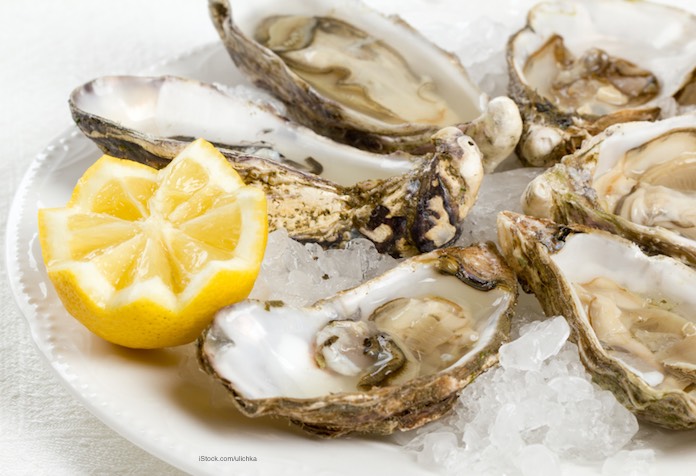According to news reports, officials at the Maryland Department of Public Health are investigating a “stomach flu” outbreak among people who attended the “Shell Shocked” beer and oyster festival on November 4, 2017. That event was held at Fager’s Island Restaurant in Ocean City, Maryland.

The state health department is working with the Worcester County Health Department on this outbreak. There is no information posted about these illnesses on either government website. According to the Baltimore Sun, the restaurant was allowed to hold a similar event on November 11, 2017.
At least 145 people were sickened in this outbreak. What is commonly known as the “stomach flu” is almost always food poisoning. No one has been sick enough to need hospitalization. No deaths are linked to this outbreak. We don’t know what may have caused this outbreak, but this event is a good reminder about how raw shellfish can cause illness and who should avoid these types of foods.
In the past, raw oysters have been linked to several types of food poisoning outbreaks. The most common illness associated with this food is norovirus. That illness has symptoms of diarrhea, vomiting, and stomach pain. Symptoms appear quite quickly, and usually only last a day or two. Most people recover without medical treatment, but some people can get dehydrated with this type of illness.
In 2014, a Campylobacter outbreak was linked to recalled oysters in Oregon. That outbreak sickened three people. Symptoms of a Campylobacter infection include diarrhea, headache, body aches, cramping, abdominal pain, and fever. This illness usually lasts for one week, and some people, especially those in high risk groups, can become seriously sick.
Oysters can also be contaminated with Vibrio vulnificus. A Virbrio outbreak associated with raw oysters and clams sickened at least 104 in 13 states in 2013. Symptoms of this illness include diarrhea, abdominal cramps, nausea, vomiting, fever, and chills. that bacteria live in marine waters and their numbers increase in the summer months. Campylobacter and Vibrio infections are usually more serious than norovirus infections.
People in high risk groups should avoid eating raw or undercooked shellfish. Those groups include the very young, the elderly, pregnant women, people with chronic diseases such as diabetes, and those with compromised immune systems.




